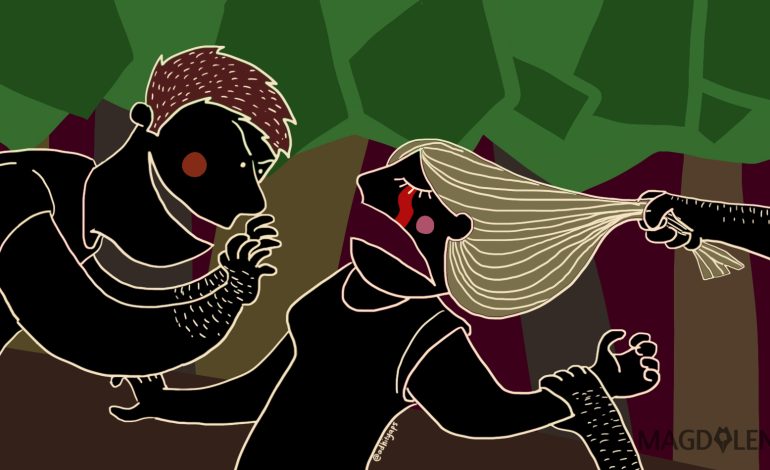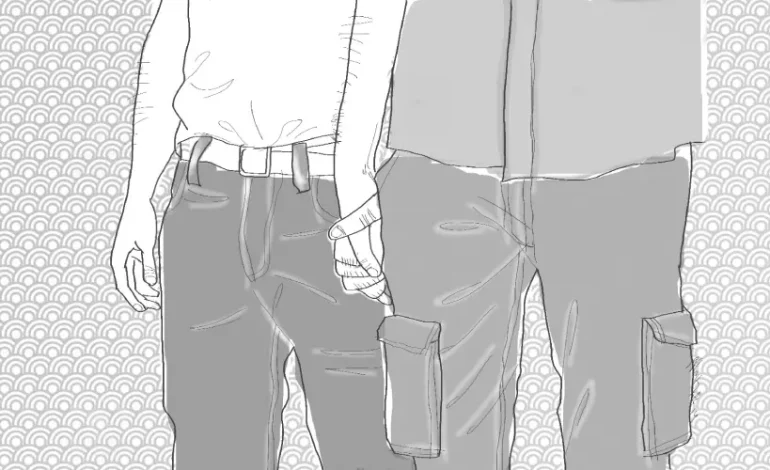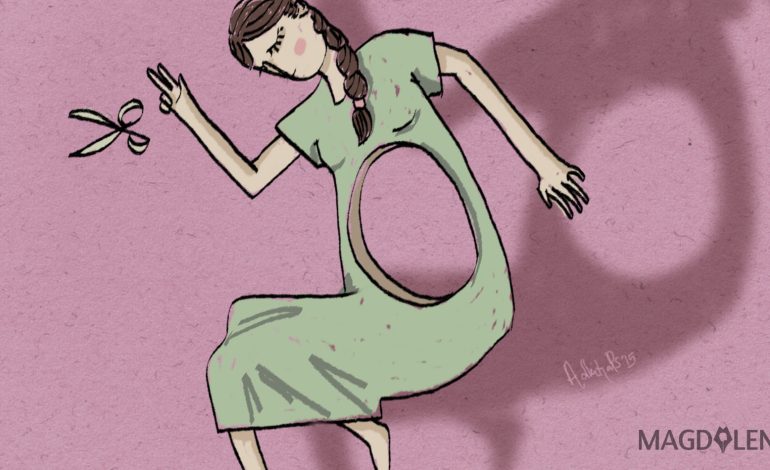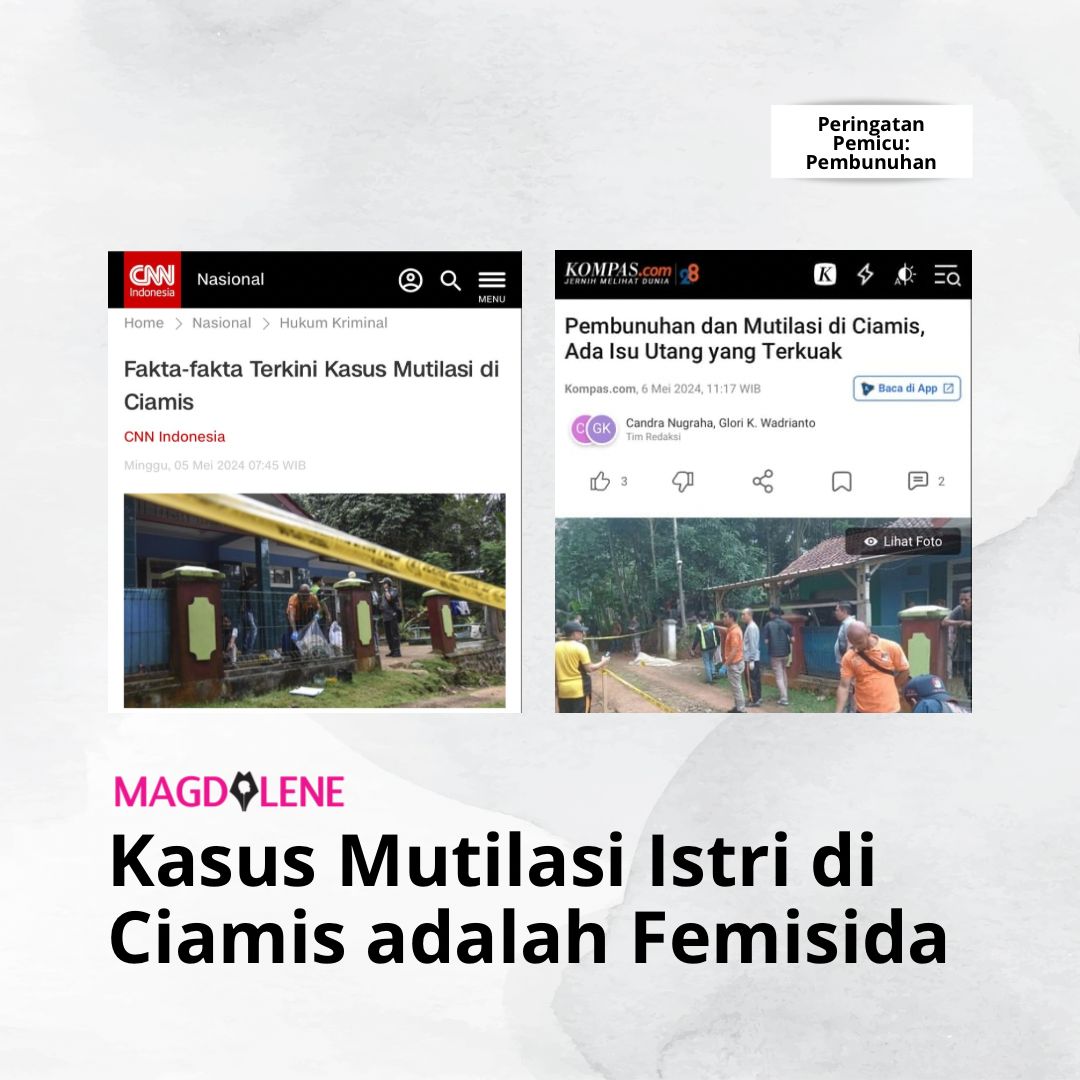We Must Change Society’s Perception of Rape and Consent: Conference
Our culture has been looking at rape from a male's point of view, failing to understand the concept of consent and power dynamics.

Ending sexual violence involves introducing the basic concept of consent and turning around the masculine way our society has been looking at rape, an academic has said in a three-day conference on women.
“Our culture has been looking at rape from a male’s point of view, without fully understanding that sexuality is a tool of power, and that in this power dynamics, women are merely the objects or the targets of men’s desire,” said Kristi Poerwandari from Gender Studies at University of Indonesia (UI).
“That is why expecting obedience from, and imposing erotization and sexual objectification on women are very common,” she said, adding the importance of understanding the basic concept of consent.
Held on Oct. 24-26, the third annual Women’s Knowledge Conference adopted the theme “Sexuality, Victimization, and Elimination of Violence against Women” to address the prevalent problem of sexual violence in Indonesia. The conference aims at bridging academicians and women communities in Indonesia so that knowledge development can stay relevant to its context while community practitioners can as well benefit from the academic research findings. It is held jointly by the National Commission on Violence against Women (Komnas Perempuan) and the Faculty of Law, University of Indonesia at UI’s campus.
“We aim to raise awareness and sensitivity on gender discrimination. We have to acknowledge that violence is not merely a matter of law, but is also closely related to its social-cultural climate. Therefore, multidisciplinary researches on local communities are significant in evoking our sense of justice regarding the problem,” said Vice Dean at the Faculty of Law Ratih Lestarini in her opening speech.
Azriana, who heads National Commission on Violence against Women, said the event was an effort to stop impunity in the country.
“Our anti-sexual violence bill is at the Draft Discussion at Commission 8 in Parliament at the moment. The research findings presented in this conference will help lawmakers to better understand the current situation in Indonesia. It will be our reference in considering the solution to the problem,” she said.
Kristi Poerwandari introduced the session by explaining the basic philosophical framework of sexuality and rape. People often have difficulties in differentiating between sexual intercourse and rape, she said, and sometimes the victims aren’t even sure whether they were raped or not. The root of this problem is a set of beliefs that is attached to gender and sexuality.
“Academician Robin Werner said that ‘both men and women are socialized to accept sexuality as the norm of sexual behavior’, which is why it’s hard for people to recognize rape as violation of human’s rights,” she said.
“Rape is generally perceived as simply a form of sexual behavior as aggression is understood as the nature of sex,” she explains.
Kristi said that the only way to break away from basic assumption that rape is merely sexual acts is by listening to the women’s point of view.
“People should stop asking the victim ‘what is your proof of retaliation?’, if the victim doesn’t look bruised and bloody enough, or if the intercourse happened more than once—people always conclude that it is based on consent—suka sama suka.”
She continued: “Actually, what they should be asking the perpetrators is ‘what is the proof of their consent’, because it is not consent when the women can’t fight back because they’re drugged. A consent in one occasion also doesn’t grant the permission of a lifetime-long sex. If it is so difficult to understand, just think about a thing that is not yours. You said you want to borrow it, the owner said yes, but then you never return it back. No wonder that person report you to the police, right? Because you are taking something that doesn’t belong to you.”
Kristi concludes that rape is indeed a violation of self-autonomy, self-possession, as well as sexual agency.
Galuh Wandita from Social Justice and Rights, who has been focusing on handling women in post-conflict areas, talked about how rape has deeply damaged both children’s and women’s lives.
“We know how rape is commonly used as a war weapon, but none of the survivors of crime of the past has received justice for what happened to them. They continue to be stigmatized for years ahead,” said Galuh. “There are still people who have ‘prisoner of G30SPKI’ in their citizen card’s ‘occupation’ column,” she added.
Women with sexual “labels” also often meet with difficulties to gain justice, said Ratna Batara Munti from LBH APIK.
“The Judge has the responsibility to look into the past, in correlation to what happened to the present case,” she said. “But when it comes to women with sexual labels – whether they are sexually active, widow, and of course sex workers – the judge would always emphasize on the perceived negative past. All other evidence are not even looked at, if the victims have the sexual labels.”
Presenting research result from Komnas Perempuan, Yuniyanti Chuzaifah concluded that impunity is indeed still the main challenge in Indonesia.
“Our data shows how the number of domestic violence has been increasing gradually. Sometimes, it’s not just about the law and justice process, it’s also about social pressure. For instance, if the perpetrators are their own husbands or parents or relatives, families often keep the attacks secret. It should make us question again about the term ‘muhrim’, which has been perceived positively as the closest, the most trusted figures,” she said.
Deeper explanation about women, rape, and Islam was being discussed by academician Nur Rofiah from the Quran Institute PTIQ.
“There was a time in the past when only men were seen as human, while it was debatable whether or not women were human. The people’s sense of humanity was of course being shaped by male’s standard and point of view, as women were just ‘half human’. So men were more entitled to all decision-making: polygamy was great, having children were great because they wouldn’t disadvantage men,” she explained.
Only men could be God’s true followers because women weren’t humans enough, she said. Women were being traded as debt guarantees, used as sex gratification, girls were married then divorced even before they got their period. Women’s overall low position in society was the reason why only men could have the capability to interpret the meaning of the bible, such as in tafsir.
“Women can now write tafsir too, but still, it cannot contradict what has been men’s tafsir, because men are considered closer to God,” she added.
Nur Rofiah argued that Islam came to negotiate with the situation at the time, with rules such as forbidding the practice of burying baby girls alive, and prostitution, which was seen as disadvantaging the women.
Islam also introduced the concept of ‘li’an’ oath, she said, which was initially to protect wives, so that the husbands could not easily accuse them of something they didn’t do, specifically on adultery.
Li’an was meant to put pressure on the men by asking him to swear five times that he told the truth.
“But now, li’an is being used to benefit rape perpetrators. People have been asking rape victims to do li’an, swearing that they are telling the truth about getting raped,” she said.
In short, li’an no longer serves its purpose to protect women, but rather to give the benefit of the doubts to rapists.
Therefore, Nur Rofiah proposed that the development of knowledge system should consider substantial justice.
“Every decision-making has to consider women’s needs,” she concludes.
*You can access the all of the complete academic papers from the conference, here.
Read Ayunda’s review on the persona of Agnez Mo.












